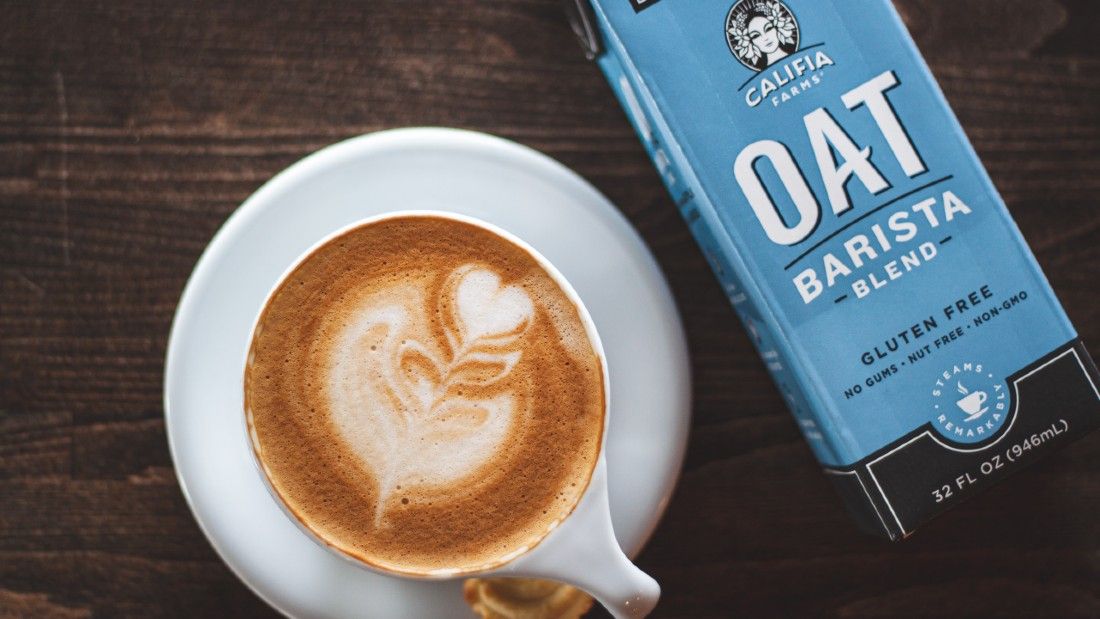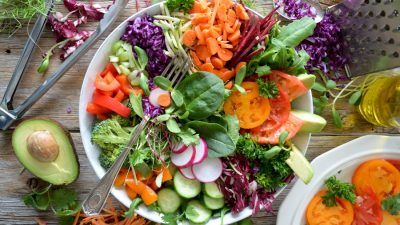5 Simple Vegan Swaps for Health

It’s glaringly obvious that our Western animal-based diets are literally becoming the death of us. Many people want to make a plant-based change but don’t know where to start. Taking the first steps into veganism may seem like a goliath task but with these five simple swaps you will find it easier than you ever imagined.
1. Meat for plant-based alternatives
Removing meat from your diet might initially seem like a big step but nowadays it’s easier than ever. Companies such as Beyond Meat, Fry’s and Linda McCartney offer incredible burgers, sausages, pies and more. Whether you prefer beef, chicken or pork, all these tastes can now be met by plant-based meats.
A 2021 analysis of the nutrient quality of plant-based meats in the UK found that meat alternatives were lower in total fat and saturated fat, and higher in fibre than animal products. They can be quite high in salt though, so take that into consideration. If you want a less processed source of protein, tofu is a great, versatile option once you know how to cook and season it to taste. See the tofu recipes on our Vegan Recipe Club.
2. Cow’s milk for a dairy-free milk
Possibly the easiest vegan swap to make is switching from cow’s milk to a plant-based alternative. Especially because these days there are so many to choose from. Not a fan of soya milk? Try oat, almond, pea, hemp, rice, hazelnut… the list goes on.
By the way, if you’re worried about the phytoestrogens in soya milk, don’t be! They are much weaker than the animal hormones in cow’s milk and actually have beneficial health effects. Many dairy-free milks are also fortified with important vitamins and minerals such vitamins D, B12 and calcium so you won’t be missing out on anything other than the nasties in cow’s milk.
On the other hand, a 2019 study found that “whole [cow’s] milk intake was significantly associated with higher risks of total mortality, cardiovascular mortality and cancer mortality.” Dairy has also been linked to increased outbreaks of acne, allergies and asthma. Make mine an oat latte please!
3. Dairy yoghurt for a dairy-free option
Just like milk alternatives, there are now a bounty of dairy-free yoghurts to dive into. You can find natural, fruit, Greek and coconut varieties plus more. As with any yoghurt, dairy or not, sugar content is something to be mindful of but fortunately there are also many sugar-free varieties such as Alpro’s range and Tesco’s own brand of plain soya yoghurts. Actimel even makes a dairy-free probiotic almond yoghurt now, so going vegan won’t give you a culture shock! (bad pun intended).
4. Cheese for “cheeze”
We know that many people struggle parting from cheese. But dairy-free cheese (aka cheeze) has come a long way in the last few years. Sure, it might take some taste tests to find your favourite, but that’s all part of the fun. Remember, there are probably plenty of animal-based cheeses that you already avoid but that doesn’t mean there aren’t those you love. The same goes for plant-based cheese too.
Brands like Violife, and some supermarkets, offer melty cheddar and mozzarella options, and there are a growing number of artisan cheese makers using traditional fermentation methods to create tasty and tangy Bries and blue cheeses (often available at vegan food festivals). If you enjoy a cheesy creamy sauce on pasta dishes, nutritional yeast will become your best friend. Simply blend it with a dairy-free milk and cashew nuts, and you’ll have a thick, luxurious cheese-like sauce.
5. Milk chocolate for dark (or “mylk” chocolate if you must)
If you really want to reap the maximum health benefits of a plant-based diet, you’d be better off ditching any highly processed milk chocolate for a dark one, rich in beneficial polyphenols. Chocolate of 70 per cent cocoa or higher, has been linked to lower blood pressure and cholesterol and a reduced risk of heart disease and diabetes.
However, if you occasionally crave some milk chocolate, vegan options are bountiful. Some are still high in sugar but many use less refined and more natural sweeteners, as well as healthier artificial sweeteners such as xylitol. Either way, they’re all free of the health risks associated with dairy and very, very delicious.
When finding plant-based replacements for your favourite animal-based products, it’s important not to give up too soon. Remember, your taste buds will adapt to new flavour sensations and there are so many alternatives available that it might take a bit of experimentation to find what works for you – but when you do, you’ll never look back.







